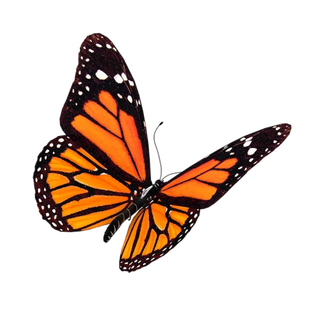Master Naturalists
University of Illinois Extension's Master Naturalist Program is designed for adults of any age that want to learn about and positively impact their local environment. The goal of the program is to engage participants with the natural world and encourage them to seek lifelong learning opportunities to further their development as a naturalist.
Master Naturalist Program participants have the opportunity to:
- Learn about Illinois' natural history, ecosystems, plant and animal communities, and environmental issues
- Enhance your love of nature through hands-on training and community-based service,
- Practice lifelong learning and sharing
- Interact and build relationships with new acquaintances with similar interests
- Give something back to nature and your local community
- Learn from and work side-by-side with experts
Master Naturalists frequently volunteer at the US Army Corps of Engineers Rend Lake Project Visitor Center, Crab Orchard Wildlife Refuge, Giant City State Park, Shawnee National Forest and more. Generally, volunteer work is done in the community, but need not be limited to local programming efforts. Many projects involve interaction with parks and recreation departments, schools, county or city agencies, and other civic organizations.
Become a Master Naturalist
The Illinois Master Naturalist program is coordinated by University of Illinois Extension, with consultation from local program partners.
Why become a Master Naturalist?
Nature is everywhere, in your neighborhood, in your backyard, and in your house. Becoming more educated about the natural world increases your awareness and appreciation of it, enriching your everyday life. In the tradition of John Muir, John James Audobon, and even Teddy Roosevelt, as a naturalist, you can contribute to conservation and a greener world. And you can play an important role in sharing that world with others in your community.
When is the next training?
In-person training will be held at Rend Lake Visitor’s Center at 11981 Rend City Rd, Benton, IL 62812 from 9 a.m. to 3 p.m.
Hybrid Format: You will complete online, self-paced assignments between classes. These assignments include watching pre-recorded lectures, completing worksheets, completing online activities, and participating in a book club. The estimated time required to complete the self-paced assignments will be 3-4 hours per topic module, but this may vary based on your learning style. There will be 2-3 topics assigned per week. You will access the online portion of the course through Learn @ Illinois Extension, also referred to as Moodle.
Online learning will be paired with in-person learning days and guided hikes. Learning days will include hands-on activities, discussions, and application of knowledge gained from the online materials for each module. Guided hikes will take place in the field and be led by experts in the topic areas.
Attending class is mandatory – all Master Naturalist trainees must complete a minimum number of course hours and session topics. Depending on the class(es) missed, a participant may not graduate from the course in the current training year. Excessive absences from class may jeopardize completion of the training. Please let a staff member know if you have a conflict with a class session before the session, and we will work with you to complete make-up work.
Applications due Friday, February 11
What does the training involve?
The course will be completed in 10 weeks. A strong internet connection is highly recommended. This course is aimed at exposing participants to in-depth natural resources content through 16 modules, including Environmental Ethics & Interpretation, Botany & Ecology; Geology, Soils, & Natural Divisions; Ornithology, Mammals, Wetlands, Rivers and Streams, & Aquatic Life; Prairies, Weather and Climate, Forestry, Invasive Species, Herpetology, Entomology, and more. After finishing training, participants have the option to put their newfound environmental stewardship knowledge to use by applying to become an Illinois Extension Master Naturalist Volunteer.
What are the expectations of a volunteer?
To become a Certified Master Naturalist, you must complete 60 hours of field and classroom learning which is offered each spring. During and after training, you may begin working on the 60 hours of volunteer service required to complete your Master Naturalist internship. You have 24 months to complete your internship and become a certified Master Naturalist. To remain certified, an additional 30 hours of volunteer service and 10 hours of continuing education should be performed and reported annually. Read more in the Master Naturalist Handbook.
What is the program fee?
The Illinois Master Naturalist course fee is $250, which covers:
- 8-12 week training, including over 60 hours of classroom instruction and field learning.
- Assistance in finding a volunteer position that fits your personal interests, abilities, and time restraints for as long as you remain a Certified Master Naturalist.
- Continuing education events and opportunities.
How do I join?
1. Complete the Master Naturalist interest form and submit it to Erica Lunde via email at eplunde@illinois.edu or mail to 402 Ava Road, Murphysboro, IL 62966.
2. Attend an informal interview.
3. Complete a background screening process, which will take place through an online system called the Volunteer Gateway. This background screening includes:
- CANTS check through DCFS
- Background screening through Sterling Volunteers
- Registered sex offender check
- Extension Child Protection Training
- 3 reference checks
4. Complete required paperwork, like a risk waiver, photo release, code of conduct, and annual agreement.
5. Pay $250 program fee.
6. Complete the 10 weeks of training.
How to become certified
After completing the training, participants will be Master Naturalist interns. To become fully certified, you must volunteer 60 hours through pre-approved volunteer projects. Volunteer projects can include invasive species pulls, herbarium specimen preparation, leading a nature hike, serving as a docent at a state park, stewardship work like trail maintenance and pollinator garden maintenance, assisting with educational programs for youth or adults, and much more.
How to remain active in the program
Following the completion of an internship, participants are certified Master Naturalists. To remain active, volunteers must complete and log 30 hours of volunteer time and 10 hours of continuing education each year and sign an annual agreement. Continuing education is continued learning from research-based sources on topics related to the natural world. Examples include webinars offered by University of Illinois Extension, talks from local nature groups, and more.

Policies and Guidelines
After reviewing the Master Naturalist handbook, volunteers should complete the Volunteer Agreement and Code of Conduct each year.
Volunteer
For More Information

Kimberly Rohling

